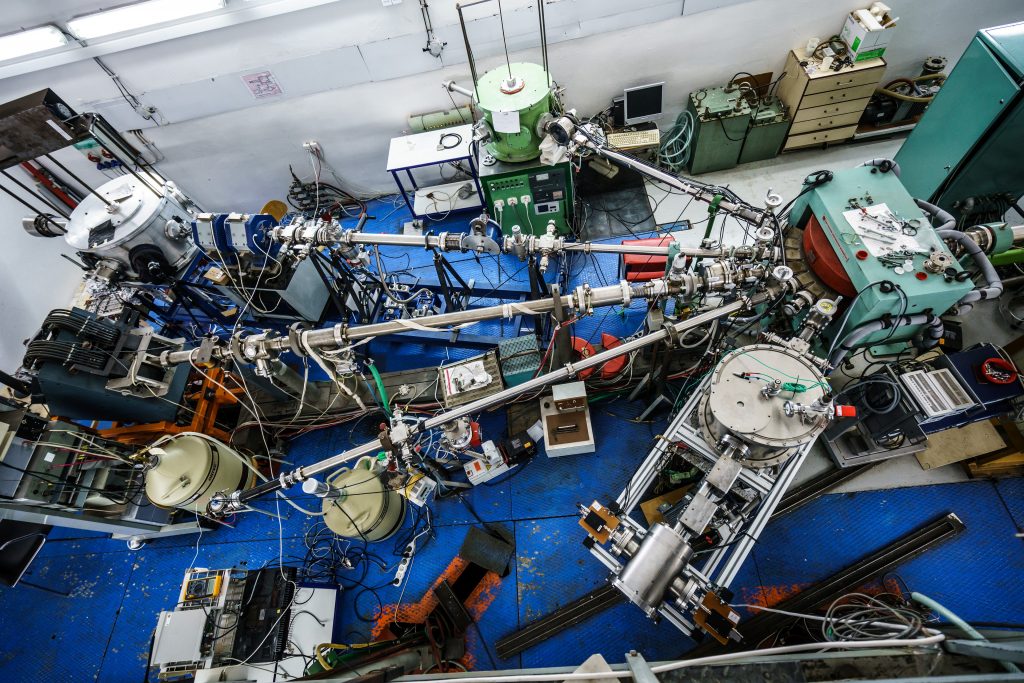Name: Van de Graaff Accelerator – A Tunable Source of Mono-energetic Neutrons and Light Ions
Institution: Czech Technical University in Prague
Coordinator: Mgr. Rudolf Sýkora, Ph.D.; rudolf.sykora@cvut.cz
Website
The VdG acts as a complex multipurpose laboratory for various types of ionizing radiation, which is operated in open access mode. For its users, the VdG provides light ions and unique mono-energetic neutrons with tunable energy, which are used for conducting basic and widely focused applied research in subatomic physics, materials physics, detector technics, for researching electronic components’ reliability (radiation damage), and for testing space technologies. Moreover, the VdG ensures education for students and professional training for young researchers. With the support of the ESA (European Space Agency), the VdG laboratory has modernized and calibrated its neutron sources and built a testing station for gamma rays of discrete energies. These facilities are ESA certified and serve to test and calibrate radiation sensitive detectors for space research. Additionally, also in collaboration with the ESA, a transportable gamma-ray station was constructed to be used for performing remote tests on devices which are designed for operating in space stations and satellites in orbit; currently, it is located in the IKI (Space Research Institute) in Moscow, where it is serving to calibrate detectors. The VdG laboratory is equipped with a broad spectrum of radionuclide sources – those of X-, alpha, gamma, and beta rays are available along with a compact neutron AmBe source, and by the end of 2018, a new deuterium-tritium neutron source will also be added. Thus, the VdG enables researchers to carry out physical research which involves polarization
neutron experiment with polarized targets for spin physics and nuclear analytical methods using tagged neutron beams, as well as studying nuclear reactions for thermonuclear fusion and astrophysics. For measuring and evaluating their experimental results, the VdG’s users may employ a large range of detectors and detection techniques which are accessible at the workplace. Widely targeted activities utilizing the VdG’s capacities take place in close cooperation with both domestic and foreign research groups. The VdG actively collaborates with international research infrastructures; they are, in particular, ESA, CERN (Conseil Européen pour la Recherche Nucléaire), European Spallation Source ERIC, and JINR (Joint Institute for Nuclear Research) and above all are the University of Montreal’s accelerator centre and Immanuel Kant Baltic Federal University in Kaliningrad.
